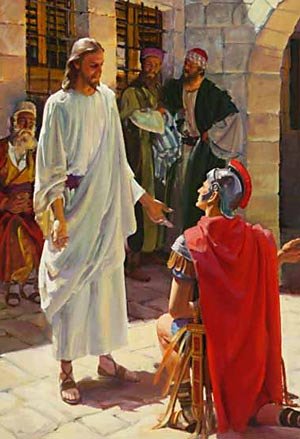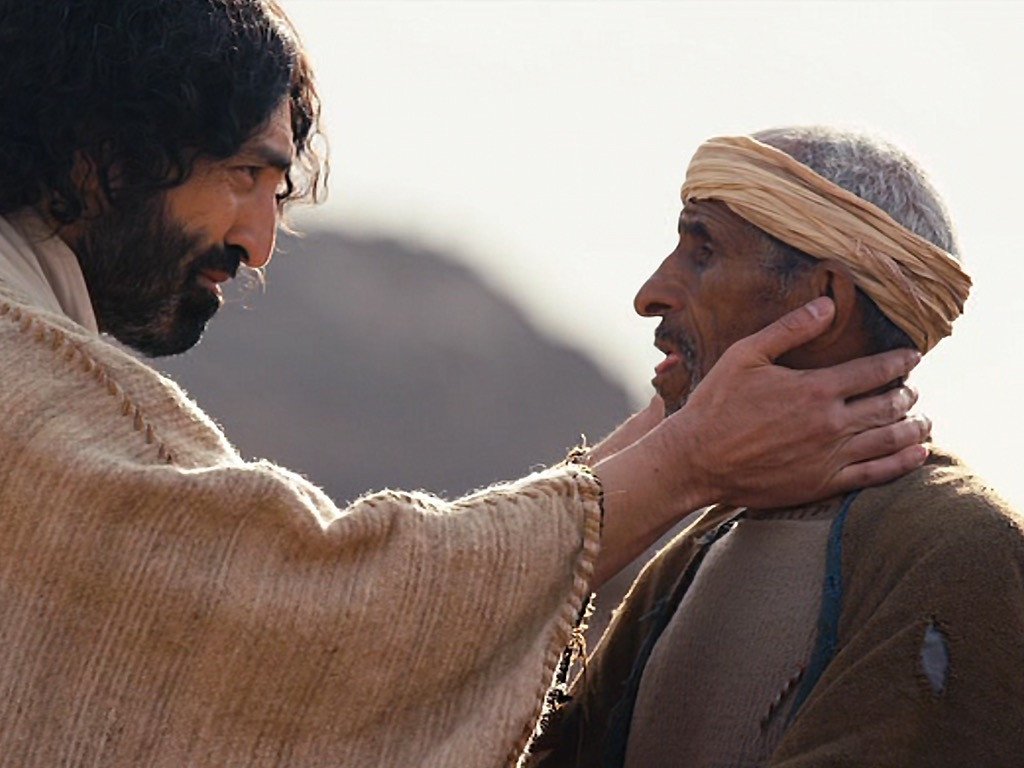We can read about this in miracle in the gospel of Mark 9:14-29 similarly we can read it in Mt 17:14–21 and Lk 9:37–43.
I want to begin with Mark 9:2-13 and here we read about the Transfiguration of Jesus. It was Peter who stated “This is a good place for us to be.” On the mountain-top, in the presence of the glory, Peter wanted to build three booths for Jesus and Moses and Elijah, and to stay there. Life was so much better, so much nearer God, there on the mountain top. Why ever come down again, was what Peter was thinking? But it is of the very essence of life that I must come down from the mountain top. The solitude is necessary, for a man must keep his contact with God; but if a man, in his search for the essential solitude, shuts himself off from his fellow-men, shuts his ears to their appeal for help, shuts his heart to the cry of their tears, that is not religion. In fact, Jesus has said that love of man is an equally important command. It is meant to make us better able to meet and cope with the demands of everyday life.
Dwelling on the miracle, Jesus came down from the mountain and a delicate situation confronted him. A father had brought his boy to the disciples in the hope of curing him as he was an epileptic. The disciples had been quite unable to deal with his case, and that had given the scribes their chance of arguing with them. The helplessness of the disciples was an opportunity to belittle not only them but also their Master. That is why it was a delicate situation. Do I not face such delicate human situation as a Christian in my life. Are not my conduct, my words, my ability or inability to cope with the demands of life, used as a yard-stick, not only to judge me, but to judge also Jesus Christ. It does not matter how high-sounding a man’s professions may be, it is by his actions that people judge him, and, in judging him, they also judge his Master.
Then Jesus arrived. When the people saw him, they were astonished. They were not astonished by the radiance of the transfiguration that still lingered on him for that would contradict his own instructions that it be kept as yet a secret. Probably the crowd had thought Jesus was away and they were so engrossed in their argument that they had not seen him come, and now, just when the moment was right, here he was in the midst of them. It was at his sudden, unexpected but opportune arrival, that they were surprised.
Here I learn two things about Jesus.
(i) Jesus was ready to face the Cross and he was ready to face a common problem just as either came. It is characteristic of human nature that we can face the great crisis-moments of life with honour and dignity, but allow the routine demands of everyday to irritate and annoy us. I can face the shattering blows of life with a certain heroism, but allow the petty pinpricks to upset us. I have seen many a man can face a great disaster or a great loss with calm serenity and yet loses his temper if a meal is badly cooked or a train late or a driver on my lane ahead of me and does not move at my own pace. The amazing thing about Jesus was that he could serenely face the Cross, and just as calmly deal with the day-to-day emergencies of life. My learning is I should not reach out to God only at the time of crisis but should include him in my daily walk of life.
(ii) Jesus had come into the world to save the world, and yet he could give himself in his entirety to the helping of one single person. It is much easier to preach the gospel of love for mankind than it is to love an individual who is not lovable especially sinners. Jesus had the rare gift, of a regal nature, of giving himself entirely to every person with who happened to approach Him.
Jesus had been on the mountain-top and the imminent task of death on the cross for humanity lay ahead of him. He had decided to give His life for the Salvation of the world. When He comes down He finds his nearest followers, his own chosen men, beaten and baffled and helpless and ineffective.
He must have had a sudden realization of what anyone else would have called the hopelessness/despair of his task. How did he meet the moment of despair? “Bring the boy to me,” he said. When we cannot deal with the ultimate situation, the thing to do is to deal with the situation which at the moment confronts us. It was as if Jesus said, “I do not know how I am ever to change these disciples of mine, but I can at this moment help this boy. Let me get on with the present task, and not despair of the future.”
He taught us the way to avoid despair. I sit and think about the state of the world, state of the economy, I may well become very downtrodden or depressed; then I should go get to action in my small corner of the world. I may sometimes despair of the church; I should proceed to action in my own small part of the church. Jesus did not sit appalled and paralyzed at the slowness of men’s minds; he dealt with the immediate situation. The point I’m trying to make here is the surest way to avoid pessimism and despair is to take immediate action that I can and there is always something to be done.
To the father of the boy Jesus stated the conditions of a miracle. “To him who believes,” said Jesus, “all things are possible.” It was as if Jesus said, “The cure of your boy depends, not on me, but on you.” To approach anything in the spirit of hopelessness is to make it hopeless; to approach anything in the spirit of faith is to make it a possibility. Many a times I find we are cursed with a sense of the impossible, and that is precisely why miracles do not happen.
The whole attitude of the father of the boy is most illuminating. Originally, he had come seeking for Jesus himself. Since Jesus was on the mountain-top he had had to deal with the disciples and his experience of them was discouraging. His faith was badly shaken, so badly shaken that when he came to Jesus all he could say at first was, “Help me, if you can.” then, face to face with Jesus, suddenly his faith blazed up again. “I believe,” he cried. “If there is still some discouragement in me, still some doubts, take them away and fill me with an unquestioning faith.”
There is an important lesson for each one here, it sometimes happens that people get less than they hoped for from some church or from some servant of the church. When that happens, they ought to press beyond the church to the Master of the Church, beyond the servant of Christ to Christ himself. The church may at times disappoint us, and God’s servants on earth may disappoint us. But when we battle our way face to face with Jesus Christ, he never disappoints us.



